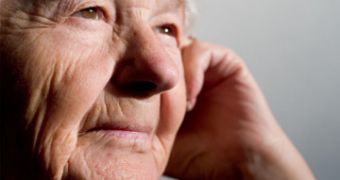Several researchers speaking at this year's meeting of the Association for Psychological Science on May 24 made a case of how, according to their investigations, older people have high chances of striking those around them as either sad or angry.
The specialists explain that, whenever two individuals interact, each of them more or less knowingly goes through the trouble of reading their interlocutor's face in order to gather information concerning the mood they are in.
Live Science reports that, unlike the faces of younger people, those of older people more often than not display creases and furrows.
These wrinkles allegedly impede an accurate face reading. As the researchers put it, they trick the person the older individual is talking to into thinking that they are dealing with a sad and/or angry person.
The same source informs us that, prior to reaching this conclusion, the researchers asked several volunteers to carefully analyze 64 pictures showing different faces.
Some of the people featured in these pictures were fairly young and had little – if any – wrinkles, whereas others had easily noticeable creases and furrows.
Despite the fact that the older people whose pictures were used in this experiment were neutral at the time when they sat down in front of the camera, the volunteers asked to look at their pictures and comment on their emotional status labeled them as sad or angry.
The researchers suspect that this happened because of the wrinkles on their forehead and the ones around their mouth.
More precisely, they say that a droopy mouth and a crinkled forehead are typically associated with said emotions, so it need not come as such a big surprise that the volunteers read these faces the way that they did.
The specialists intend to carry out several other experiments and investigations and hopefully shed more light on this issue.

 14 DAY TRIAL //
14 DAY TRIAL //